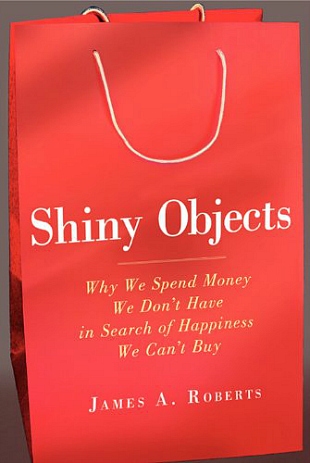James A. Roberts is Professor of Marketing and Entrepreneurship at Baylor University in Waco, Texas, where he has been a faculty member since 1991. His research on compulsive buying, credit card abuse, and the ways in which materialism affects the quality of our lives has been widely featured in a variety of top publications. In this well-organized and passionately presented book, Roberts offers a stinging critique of materialism and consumerism in America. He counters with strategies citizens can use to combat the troublesome spin-offs of credit-card abuse, compulsive shopping, and the self-destructive habit of spending money that isn’t there.
Here are some startling figures:
• 70% of Americans live from paycheck to paycheck.
• Over 1.5 million Americans filed for bankruptcy in 2010.
• A survey at UCLA in 2010 found that 77 percent of all freshmen thought it was very important to be "well-off financially."
• By early 2011, the average American household carried nearly $10,000 in credit-card debt.
• 150 million cell phones are thrown out each year.
• We spend more than $41 billion annually on our pets.
Roberts defines materialism as "a mind-set, an interest in getting and spending, the worship of things, the overriding importance that someone attaches to worldly possessions. For a consumer who has fully embraced shiny objects, possessions take center stage and are considered to be the primary source of all happiness." During these hard times when the American Dream seems to have receded thanks to the financial difficulties of the middle-class and the poor, clinical psychologist Oliver James has come up with a means of understanding where we are today, thanks to what he calls "selfish capitalism." Here are the characteristics of SC:
1. Larger disparities in wealth between the rich and poor
2. Higher proportion of workers earning less than the average wage
3. Wealth in the hands of a small number of wealthy elites
4. Higher personal debt
5. Higher credit card ownership
6. Lower personal savings
7. Longer work weeks
8. Less economic security
Roberts hit high stride with his commentary on the treadmill of consumption, the cashless society, relationships as collateral damage, the prosperity Gospel, and weapons of mass consumption such as products designed for the dump. In the last sections of Shiny Objects, he covers "25 Tweaks to Financial Tranquility," some suggestion for behavioral training for consumers, and the adventure of shopping for meaning.
